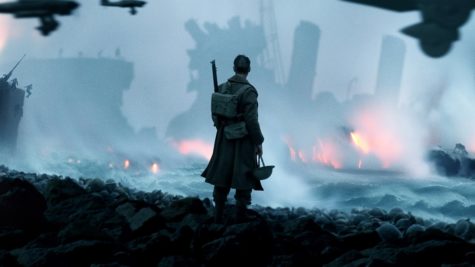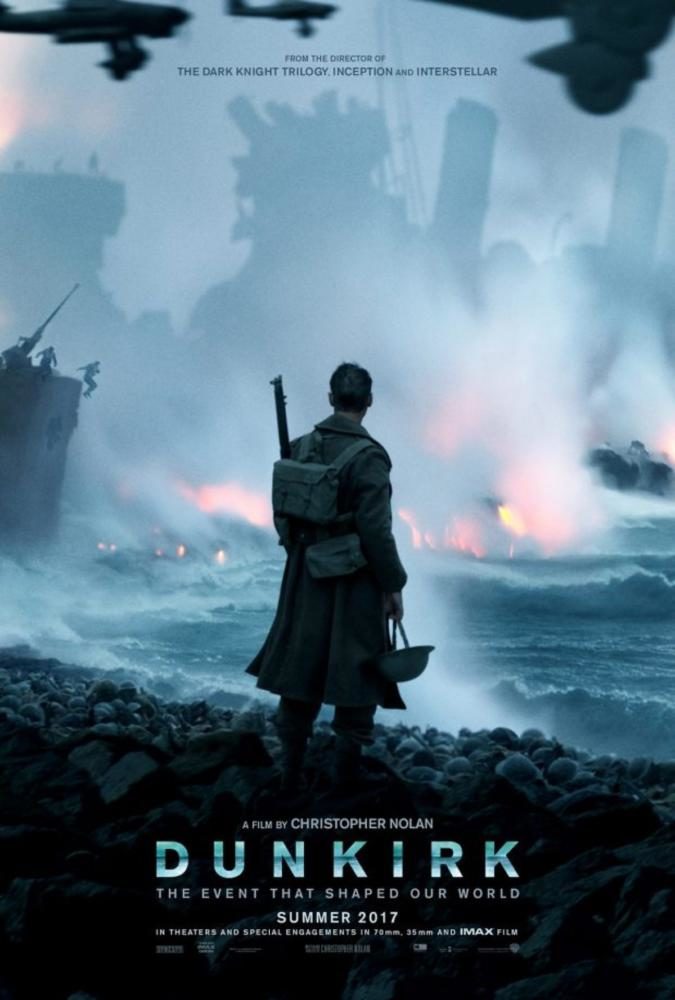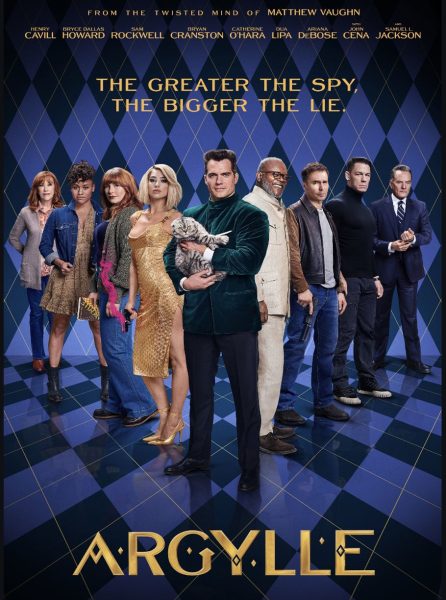Dunkirk – A Film Review
Christopher Nolan’s WWII film is as confusing as it is breathtaking
August 4, 2017
My ears are bleeding from the Stuka siren.
Dunkirk is directed by Christopher Nolan and stars Fionn Whitehead, Cillian Murphy, and Tom Hardy. Though it hardly matters who starred in this film, and I’ll get to why in a bit.
The film tells the story of the Dunkirk evacuation, a.k.a Operation Dynamo during World War II. That is the best description I can give without giving away more, because this film’s narrative is very different from the standard war film.
Most war films have a set cast of characters, each with their own backstories and personality that allow us to get attached to them, and have arcs that are supposed to get us invested in them as they slog through the battlefield. Some do this spectacularly, giving us films like Saving Private Ryan, and other times, Hollywood’s money maker who specializes in explosion-porn takes over, gruesomely transforming December 7th, 1941.
There is nothing like that in Dunkirk.

The whole narrative is split into three sections, each focusing on the land, the sea, and the air. The film doesn’t have any main cast. Don’t get me wrong; it has people that the camera lingers on the most, but they never get fully developed, or give us any material to get attached to them.
Some might say it’s a bad thing, and in most cases, it would be. But what Dunkirk has done is it dwells less on character and more on the situation itself. It tells the story through what is happening, not who is going through the happening.
The actors themselves all pull off their roles well; special praise has to go to Tom Hardy, playing a Spitfire pilot. He doesn’t show his face much – I suppose it’s his fate to have his face covered up in a Nolan movie – but that only shows off more of his talent when he needs to act just with his eyes to convey how desperate the situation is.

But like I said, it’s not the actors that make this film, it’s the setting. This is both the strength and the weakness of the film. On one hand, because there was no main cast to follow, it was much harder to get grounded into the story in the beginning.
It didn’t help that Nolan once again showed off his trademark plot-scrambler, as the three narratives start off in different time frames and constantly switch in and out. For the first thirty minutes, trying to follow the story was like playing three different Limp Bizkit songs at the same time on iTunes.
Yet despite all that, towards the end I suddenly realized how hard I was gripping my armrest. I realized that I was leaning forward on my seat and that my back was hurting all over because of it. It came to me that despite knowing next to nothing about the soldiers onscreen, I wanted to know what was going to happen to them.
And that’s the true strength of Dunkirk – it’s sheer immersion.

The film doesn’t need tragic characters or family pictures to seize its audience. The sweeping shots, the thunderous sounds of gunfire and spitfire, and the terror etched into every soldier’s faces is what grabs my attention, even as I am trying to comprehend what exactly is going on.
Other war films – or films in general – had me feel like I was alongside the characters, feeling what they’re feeling. Dunkirk had me in the film itself. And as the story drew to a conclusion and the confusing timeline scrambles fell mostly into place, it resulted in, not a catharsis, but a lingering aftertaste.
One of the biggest reasons for that immersion is the soundtrack. “Supermarine” by Hans Zimmer is one of the most intense music I’ve heard from him since Inception. It’s near-hypnotic, subliminally raising your tension along with the film.
Another thing that I’d like to take a brief moment to praise is the dogfight. The whole movie is IMAX-worthy, but the airborne battle scenes are in a class of their own, and is where the immersive atmosphere reached its peak.
This film didn’t make me exhilarated. It made me feel solemn, grim, and shell-shocked, almost like I’ve survived a war – hey wait a minute!
I can’t say this film tells a good story. Rather, it gives you a breathtaking experience that will have you feeling the moment, rather than watching the story. This is a very different film, not just among war movies, but cinema in general.

Whether that is a good or bad thing is up to you to decide. I, for one, can praise this film for being its story rather than telling it, but it comes at the cost of immense confusion of the plot. Dunkirk captures the audience into the battle itself – and leaves them as overwhelmed as a true soldier of war.
Final Verdict: A-
As a story, Dunkirk crashes. As an experience, it flies high and triumphant.













